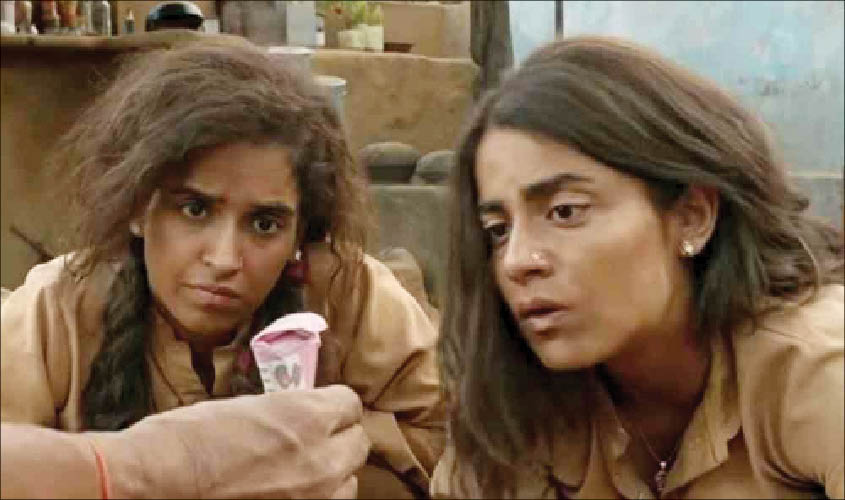Fed up of his two querulous daughters who can’t stand each other, the father helplessly asks a man, “I just don’t understand why my daughters are constantly fighting with each other all the time?” The man responds with a question of his own, “Why do India and Pakistan keep fighting each other all the time?” This analogy not only helps us fathom the conflict at the heart of Pataakha but it also reminds us that sometimes we get so used to doing something that after a point we don’t even need a reason to do it again and again. For, it becomes an integral part of what we are. Just like any perennial tussle, the constant fighting between the two sisters, Badki and Chhutki, more often than not, results in some sort of a collateral damage. Also, it ensures that invariably a third entity benefits at their expense.
Based on an interesting short story by Rajasthani writer Charan Singh Pathik, Pataakha has many elements of an absurdist dark comedy with Marquezian undertones. But, perhaps, the characters are even more interesting than the story itself. Apart from the two warring sisters and their stoic father, we have a man called Dipper, who is named so because of a congenital eye condition. He is one of those characters that Vishal Bhardwaj seems fixated with, characters whose roots can possibly be traced back to Shakespeare. Another secondary character in Pataakha that deserves a special mention is the lecherous Patel who pines for both Chhutki and Badki. When all his efforts fail he desperately settles with a Nepali girl. Through the character of Patel, Pataakha not only highlights the patriarchal drive behind older men marrying poor girls but also exposes how poor girls from countries like Nepal are sold into sexual slavery.
The film is as much about dreams as it is about rivalry. While Badki wants to start a dairy farm, Chhutki wants to complete her studies so that she can become a teacher and inspire others to learn. As simple and straightforward as these dreams may seem, Chhutki and Badki chase them like women possessed. So strong is the urge to succeed that it ends up haunting their imagination. Bhardwaj limns these scenes with surrealistic strokes that may remind some of the works of Emir Kusturica. The heady music immensely adds to the evocative imagery and engaging dialogues delivered with authority by a bunch of fearless performers.
Editing is an important storytelling tool and a seasoned filmmaker like Bhardwaj understands this well. In at least two crucial places in the film he cleverly employs montages which allow him to tell the story rather economically. At a subtextual level, Pataakha is rife with symbolism, metaphors and intertextual references. The most obvious reference is to the coin toss in Sholay; only here it’s not a coin but a stone that’s tossed up to decide the fate of the two sisters at two critical occasions in the film. Also, there is playful reference to Salman Khan who often finds a place in Bhardwaj’s colourful world. Pataakha isn’t just a timely return to form for Vishal Bhardwaj but it is also a cinematic tour de force that›s embellished by memorable performances. Although, Pataakha’s ending is rather predictable, the film offers enough to keep the viewer engaged for the most part.

